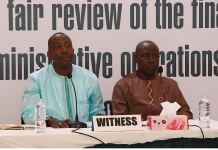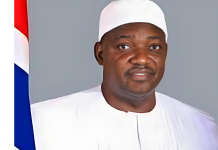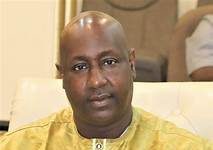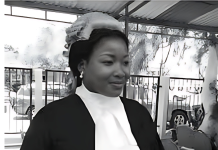security apparatus remain. Those in the public service are employed up to retirement age which is now 60. Those in the security apparatus serve their contracts. This is why they are supposed to be neutral by performing their duties without fear or favour, affection or ill will. Once they do that they would be able to function under any government. In fact, this view is also the view of the Constitution of the Gambia which has given instruction under Section 223 that: “A public officer shall acquire such professional competence to enable him or her to perform the functions of his or her office with efficiency. He or she shall dispose promptly of the business of his or her office, shall devote adequate time to his or her duties, be punctual in attending work and expeditious in bringing to a conclusion any matter under his or her attention. A public officer shall require his or her staff to observe the same standards. A public officer shall not, in the course of his or her official functions and without lawful excuse, do or cause to be done any action which is prejudicial to the rights of any other person. “ In the exercise of his or her duties, a public officer shall avoid nepotism and favouritism. A public officer shall not encourage others to convey the impression that they are in a special position to influence him or her. “ A person holding an office in a public service or any disciplined force shall not- (a) allow his or her political inclinations to interfere with the discharge of his or her official duties; (c) take part in any activities which cast doubt on his or her capacity to deal impartially with matters or issues which are the concern of his or her public office or which interfere with the performance of his or her public duties.” If all civil servants and members of the discipline force adhere to this code, no political party would have an axe to grind with any of them. ]]>
© 2019 Foroyaa Newspaper - Site by DigiTech Solutions



















